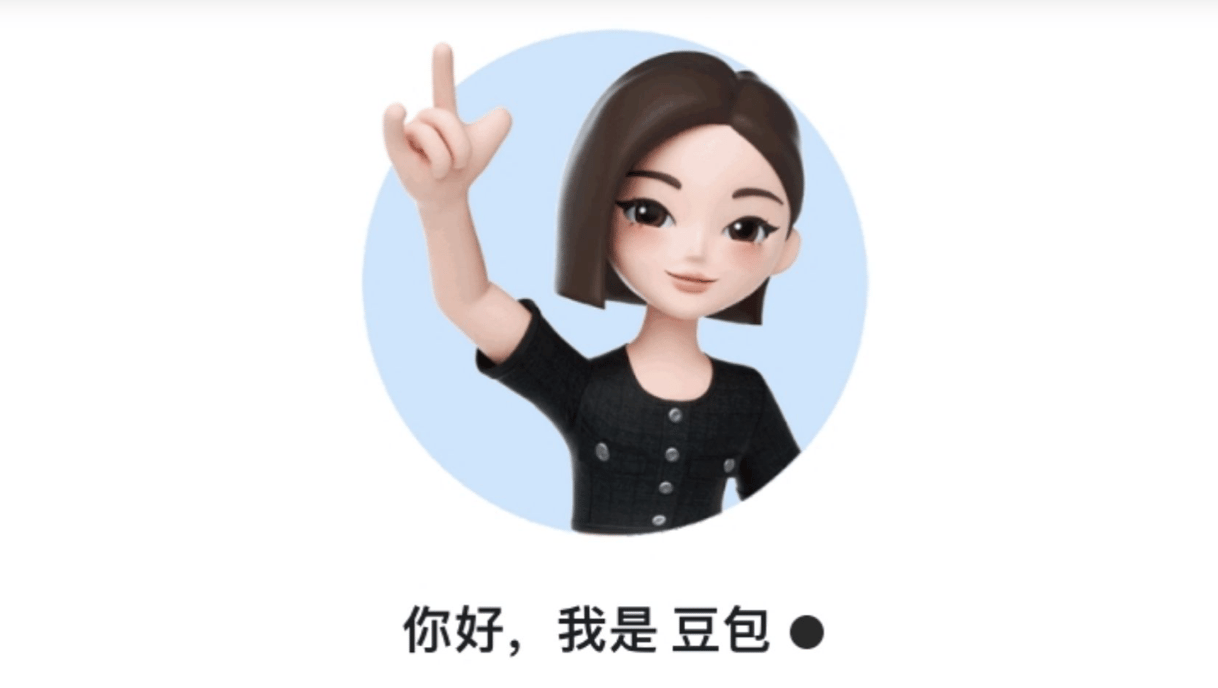If “rizz” was last year’s TikTok buzzword, then “You have big eyes, small face, I like. What’s your WeChat?” could claim the title of 2023’s pickup line of the year. The catchphrase, which became a viral sensation for the Asian and chronically online, was created by Vancouver-based TikToker Remy Zee. With 17 million views and 2.3 million likes on the video that started it all, Remy Zee has quickly ascended to become one of TikTok’s fastest-growing Asian comedy creators, amassing 17.6 million likes and over 232.9K followers.
It’s the instantly meme-able quality of Remy’s videos that captivates. His skits, often under a minute long, pack a punch with hyper-specific humor that resonates more with those familiar with the nuances of recent Chinese transplants in Western countries, particularly international students. His signature line has inspired thousands on TikTok to create their own content, even sparking “big eyes small face makeup” tutorials. With just 30-some videos, the Vancouver-based creator has struck brand partnerships with names like Duolingo, Coffee Meets Bagel, and Haidilao, transforming his out-of-context humor into a cultural phenomenon.
In his most successful video, Remy’s character switches between English and Chinese to swear as he catches a ball carelessly thrown by his friend “Michael,” then smoothly turns to the camera. “You have big eyes, small face, I like,” he says, staring into the lens with much intensity and unabashed confidence. “What’s your WeChat?”
Remy’s character is instantly recognizable to those who know — he wears a Ferrari jacket, sports a middle-part hairstyle, and exudes a nonchalant vibe, all while speaking Mandarin-accented English, channeling strong “Y’all ladies alright” energy. Named LeBron, after his favorite basketball star, this character navigates the dating scene on a college campus with a unique blend of confidence and cluelessness.
LeBron speaks English in almost all the videos, but his mannerisms, values, and beauty standards are unabashedly Chinese. He compliments women with oddly specific, sometimes crass expressions — “I’m lost in your collar bones”; “you have very natural double eyelid”; “Your big earlobes will bring me good fortune”; and “Your face, it’s like an upside down sunflower seed.” He lacks cultural awareness but remains unbothered, operating under his own set of rules. He drives around in luxury cars and impresses his girl with extravagant grand gestures. He is undeniably privileged, but his relative financial ease does not translate into social status. He is an outlier, but at the same time the main character of his own world.
RADII was lucky enough to connect with Remy over video chat recently. The following interview has been edited for length and clarity.
Du Anrui: Can you tell me a little bit about your background?
Remy Zee: I was born and raised in Canada — so pretty Westernized, but my parents are first generation Chinese immigrants, first to Japan and then Canada. They were pretty strict, and I did all the typical Asian kid extracurricular activities like piano and tutoring. I also ended up majoring in computer engineering and material engineering.
Anrui: That makes you a Chinese Canadian! What was your experience with Chinese international students and how did it inform your videos?
Remy: Although I am not a Chinese international student, I am raised by two. My parents were the first generation of Chinese international students. I also live in Vancouver, a place notorious for having a lot of international students and big Asian culture. A lot of my best friends at high school and uni are international students, so I guess it makes it easier to pick up on the subtleties in their behaviors.
There is a stark contrast between different generations of Chinese study abroad students. A common example my mom likes to mention is, when they first landed in Canada in the 90s, the first thing was to go to a restaurant to work. But for international students now, the first thing they do after landing here is going to a restaurant to eat. I just think there are a lot of interesting cultural nuances to talk about, especially within the Asian community — things that a lot of people would find relatable.
Anrui: You videos did find a big audience in the Asian diaspora, a lot of Chinese international students and second or third gen Asian immigrants in the West alike find humor in the subtle culture differences you captured in your videos. When did you start to notice these comedic moments around you?
Remy: Of course, my videos are satires. LeBron is a character I play and an exaggeration of real people. I can’t really pinpoint the exact moment where I realized there was a huge cultural difference between me and my international student peers, even though we are both Chinese immigrants. And they manifest in small things they do.
Growing up I got used to my parents being frugal and always saving money, so it was a bit surprising that a lot of international students I met were really financially well-off, like they don’t care about how much they spent and stuff. They can also be very direct in the way they speak, because they lack the cultural context here, so they can come off as unusually honest in the Western eyes. A lot of these observations are built up just through interactions with friends, like how Chinese international students can be conscious of their face-to-eyes ratio, and when you want to establish contact with someone it’s never asking for a number but “jia ge weixin” (加个微信, what’s your WeChat).
Anrui: Does life imitate art or art imitate life… Can you tell me a little bit about your creative process of coming up with the iconic pick line “You have big eyes, small face, I like, what’s your WeChat?”
Remy: Well, I can’t exactly remember the exact moment I came up with it, but I was procrastinating on another video I was working on, and just thought of this, something about how a common Chinese compliment could be lost in translation. “You have big eyes and small face” can be such a crass thing to say when you want to tell someone they are attractive, and when taken out of context, the contemporary Chinese beauty standard can feel pretty odd.
I told one of my friends this and he was like “Oh my god, this is the funniest thing ever.” So I later started getting more analytical and trying to work out the exact wording, trying to get the vibe of a person who switches between Chinese and English constantly and is not too familiar with the Western cultural context.
Anrui: So procrastination is good for you sometimes.
Remy: Truth.
Anrui: So that’s how the character LeBron comes to life. What do Remy and LeBron share? How are Remy and LeBron different? I see a basketball poster behind you. Are you a LeBron James fan yourself?
Remy: Well, yeah, I grew up playing basketball, but I’m more like a Raptors fan. LeBron is alright, but I used him in the videos mostly because I like how LeBron Jay-Mu-Si sounds in a Mandarin accent. Otherwise we are not so much alike. LeBron is a character that I do. I never wear designer brands or anything like that.
Anrui. LOL that is actually a very clueless international student name.
Remy: I think the experience is so unique, when you suddenly move to a new country without much context, and you have to pick a new name. It makes sense that a lot of people would pick their idols. I literally have international friends named Kobe. Oh I have also met an Asian Jamal once.
Anrui: You did the accent pretty accurately I gotta say…
Remy: Thank you! I think most Asian American/Canadian comedy in the West now represents a Cantonese/Hong Kong Chinese accent, which is very different from the common Mandarin accent from more recent international students. I try to emulate that.
Anrui: How is your rizz game in real life though?
Remy: Well, I mean, I’m not like that [LeBron]. I am probably more like one of the nerdy engineering kids.
Anrui: So if you find a girl cute, you would not ask for her WeChat?
Remy: No.
Anrui: You have never asked for any girls’ WeChat?
Remy: No.
Anrui: Wow… Your videos don’t just touch on subtle cultural differences between Asian immigrants of different generations and social class background, but are mostly themed around dating and masculinity, in particular how guys charm and impress girls by “rizzing up” on them. When you are portraying LeBron the character, do you mean for him to be perceived as someone with a lot of game or very little?
Remy: I think it’s up to the audience’s interpretations. In my mind, I think he doesn’t really care what people think of whether he has game or not. He is just acting the way that makes sense to himself, saying what’s on his mind like all the time. And if he finds someone attractive, he is going to tell them and he’s unapologetic in the way he does it. Like whether he has rizz or not, you know, is up to interpretation. You could say that he’s charming in his own way, but also a little bit cringe sometimes too. So, you decide, I guess.
My goal is never to make fun of people, and of course not everyone acts like that. I just want to bring to light some observations I have in my mind. I find my international friends super endearing, and even when they say something that might be a bit lost in translation, they are so well-intentioned.
Anrui: Any future plans?
Remy: I guess just to make the funniest video possible. I really look up to comedians like Dave Chappelle, Key & Peele, Shane Gillis, and Jimmy Ouyang. I just graduated college and am fortunately able to make videos full-time now and support myself.
Banner image by Haedi Yue.


















